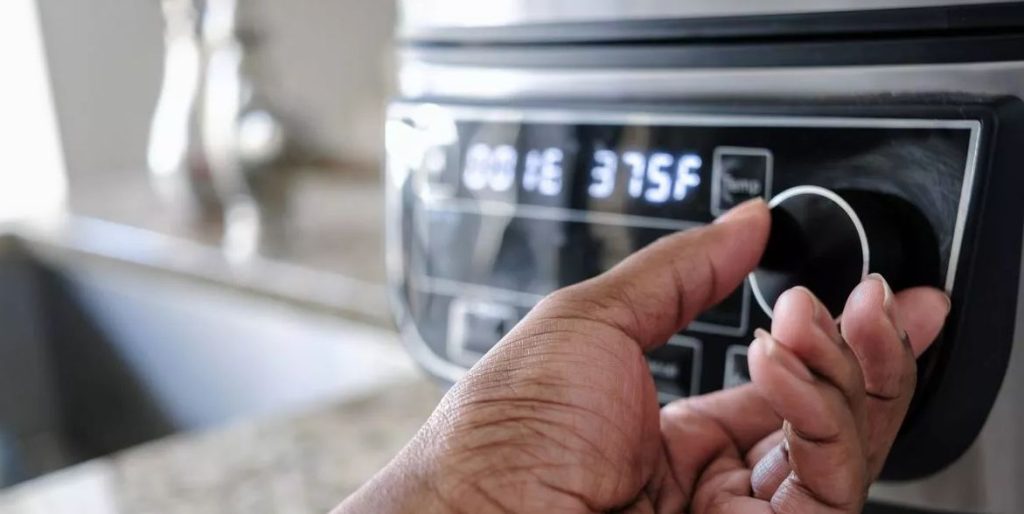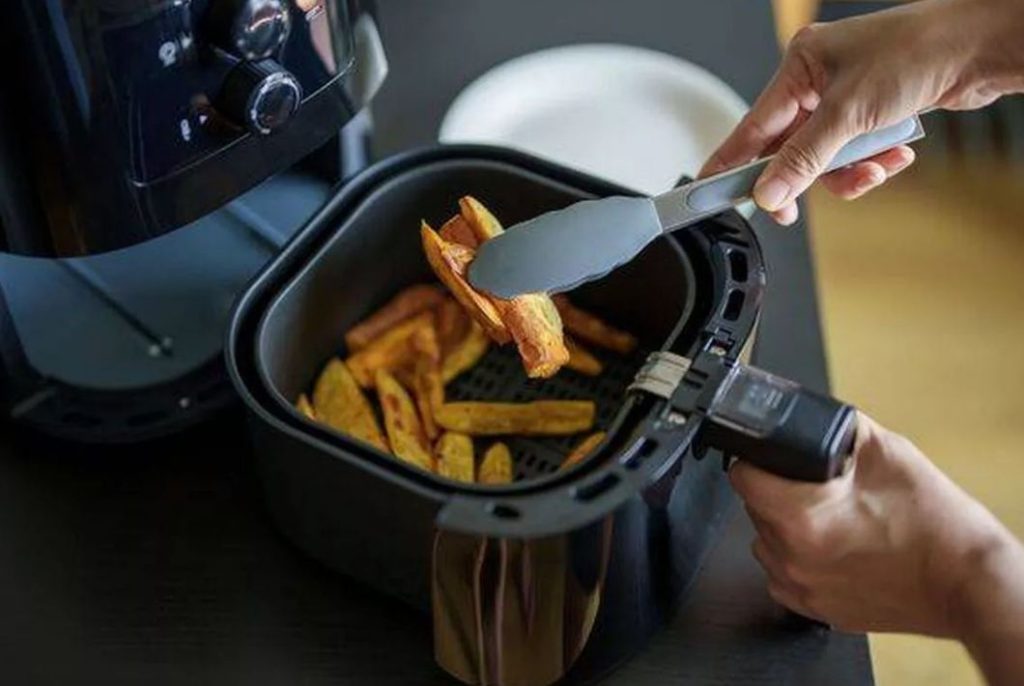Air fryers have become one of the most popular kitchen appliances in recent years. Their ability to cook food quickly, with less oil, has convinced many people to replace their traditional ovens entirely. However, some experts have recently cautioned that using an air fryer as a complete substitute for an oven may not always be the best idea. Although air fryers are convenient, they are not designed to handle every type of cooking task.
Differences in How Heat Works
One of the main points raised by specialists is the difference in how heat circulates. Air fryers rely on rapid, concentrated airflow inside a small chamber. This makes certain foods—like potatoes, small cuts of meat, or frozen snacks—cook quickly and evenly. Ovens, on the other hand, use larger heating elements and a spacious interior that allows for more controlled and consistent heat distribution. Because of this, ovens are better suited for tasks that require steady, uniform temperatures. Baking large dishes, roasting whole poultry, or preparing multiple trays at once are areas where a traditional oven still performs more reliably. Air fryers may struggle in these situations, potentially leading to uneven cooking or food that dries out too quickly.

Limited Capacity and Space
Another important consideration is size. Even the largest air fryers cannot match the capacity of a standard oven. When cooking for a family or preparing meals for gatherings, users might find themselves needing to cook in several small batches. This not only increases the overall cooking time but can also affect the quality of the food, especially if earlier batches cool down while later ones cook. Experts note that the compact size of an air fryer is both its greatest advantage and its greatest limitation. While ideal for quick meals, it is not designed to replace the large interior space that many recipes require.
Impact on Food Texture and Results
Although air fryers can create a crisp texture that many people love, this effect may not translate well to all foods. Baking items like cakes, breads, or casseroles often requires slow, even heating so the center can cook properly. Air fryers, with their intense airflow, can cause the outside of these dishes to brown too quickly while leaving the inside undercooked. Similarly, large cuts of meat may not cook evenly. The quick, intense heat can cause the surface to overcook before the interior reaches a safe temperature. Ovens remain the more reliable option for such dishes, especially when precision is needed.
Energy Use and Appliance Longevity
Some people assume that air fryers always use less energy than ovens because they cook faster. While this is sometimes true, experts point out that cooking multiple batches increases energy use over time. Additionally, air fryers are not designed for heavy, continuous daily use. Their heating elements and internal fans may wear out more quickly if used for oven-level workloads. Ovens, built for long-term durability, can handle repeated use without the same strain.

A Balanced Approach to Cooking
The general message from professionals is not to stop using air fryers altogether, but to understand their strengths and limitations. Air fryers are excellent for quick snacks, crisp sides, and small meals. For larger dishes, baking tasks, or recipes requiring steady heat, ovens remain the better choice. By using each appliance for what it does best, home cooks can achieve better results, extend the life of their devices, and create meals that are both delicious and properly prepared.

















